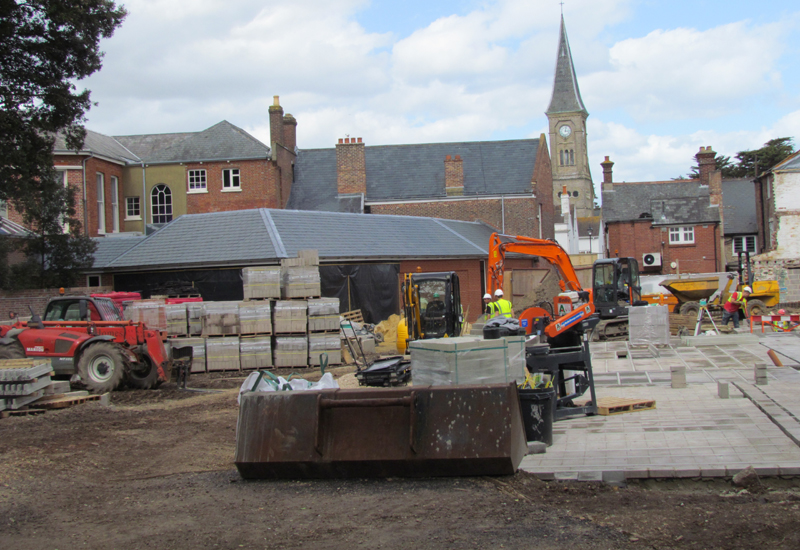
A look at some of the reaction to the Chancellor’s 2019 Budget.
The 2019 Budget delivered a number of announcements relating to residential construction.
The Chancellor announced that planning rules will be eased to allow home-building on empty sites. There will also be an injection of £650m, to be introduced over the next four years via the Future High Streets Fund, to allow towns and cities to “redevelop under-used retail space into homes and offices”.
Help-to-Buy is to be extended to 2023, although some of the terms of the scheme will be amended. The scheme will be solely for first-time buyers and value limits will be set against regional property price caps.
An additional £500m will be made available through the Housing Infrastructure Fund to enable a further 650,000 new homes to be built.
Alongside the Budget, Sir Oliver Letwin’s review into build out rates was also published. It indicated the need for a more diverse, multi-tenure approach to large sites.
Carl Dyer, Head of Planning at Irwin Mitchell:
“With the retail sector under pressure with the rise of on-line retailing, it makes sense to look at other uses for the many empty shops around the country. As we have a national housing crisis, converting redundant shops to homes is a “win-win” proposition: assets which are no longer used can be converted to address a separate problem without putting pressure on Green Field land.
“Other announcements in the Budget such as £500m for the Housing Infrastructure Fund, designed to enable a further 650,000 homes to be built and new partnerships with housing associations in England to deliver 13,000 homes certainly seem steps in the right direction. However, we wait to see the finer detail on these and along with Oliver Letwin’s report issued today.”
Jason Lowes, Partner at commercial property and planning consultancy Rapleys:
“The roll out of Permitted Development Rights for retail properties is a welcome step in the right direction, with the hope being that bringing residential and introducing a wider range of uses into the high street creates opportunities to both to fill in gaps in vacancy and drive footfall to traditional retailers.
“The further acknowledgement in the Letwin Review about lack of evidence for land banking is welcomed, but the Government’s response in February 2019 needs to ensure that it does not increase the complexity of a planning system as it relates to large sites, which would further challenge developers and stretched local authorities.”
Björn Conway, CEO, ilke Homes:
“We welcome the Government’s announcement that a further £500m is being allocated to the Housing Infrastructure Fund, in order to deliver an additional 650,000 homes for UK families. To unlock the necessary land to meet the growing housing demand, it’s imperative that we make the most of all available land assets despite the challenges and site constraints.
“It’s also reassuring to hear the news that the Government will be working with Councils to redevelop disused areas of the high street as part of the Future High Street Fund, turning retail property into residential. Building onto the rooftops of existing buildings to maximise space or re-developing existing buildings provides a creative housing solution that can contribute to the delivery of much-needed new homes.
“Modular housing can and should be used alongside traditional housing to address the chronic shortage of homes in this country.”
Will Waller, Head of Market Intelligence, Arcadis:
“Noticeable by its absence in Hammond’s speech was any mention of the ‘Help to Buy’ Equity Loan Scheme. But the housebuilding community won’t be disappointed. The red book heralds a new Help to Buy Equity Loan scheme that will run from April 2021 for 2 years to the tune of almost £9bn. Even better, it also won’t be contingent on any site-specifics or new planning policy. That said, whilst this policy will provide renewed comfort and opportunity, the red book makes it clear that March 2023 will be the definite end to the scheme. The big house builders will need to invest in evolving business and delivery models.”
Melanie Leech, Chief Executive, British Property Federation:
“We welcome the Government’s sensible, measured approach to land value uplift. In a noisy environment with multiple views on land value capture being aired, it is pleasing to see such a considered response providing more certainty for developers and local authorities, and enabling more infrastructure provision for local communities.
“We welcome Sir Oliver Letwin’s recommendations, and in particular, his focus on the need for a more diverse, multi-tenure approach to large sites. The benefits will be three-fold, both helping to address market absorption rates and deliver homes quicker and help to create more sustainable places home to different demographics, socio-economic backgrounds, fostering a greater sense of community.”
David Payton, Partner in Dentons’ UK Real Estate Litigation team:
“No support was offered by the Chancellor for prefabrication within the UK housebuilding sector. It does have a mixed history in the UK and there is likely to remain insufficient incentive for house builders to invest.
“It will be disappointing for some in the residential development sector that the Chancellor has not announced any specific measures to help older homeowners move to smaller properties.”
Kersten Muller, Head of Real Estate Tax, Grant Thornton UK LLP:
“This year’s Budget was widely expected to include much needed measures to help boost the supply of new homes in our country and we were not let down.
“A number of announcements were made – from an additional £500m for the Housing Infrastructure Fund, extensions to stamp duty tax relief for shared equity purchases and new partnerships with English housing associations – all with an aim to get the country building.
“The investment did not stop there however, with a targeted fund to rejuvenate the high street and business rates relief introduced for smaller businesses. On top of that we saw a welcome extension to the Annual Investment Allowance to £1m and a new tax relief for eligible construction costs on structures and buildings of 2% per annum.
“We welcome these incentives as they demonstrate a longer term commitment to improving the UK as a destination for investment, a place to do business and for people to enjoy visiting. The guarantees to smaller house builders announced today are also welcome as they will help to encourage greater diversity in our new home offerings.”








